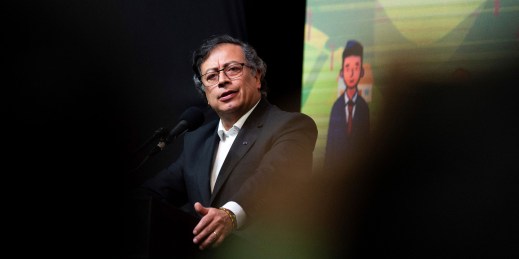
No one paying attention would disagree with Colombian President Gustavo Petro’s assessment that the “war on drugs” has failed miserably. But highlighting the failure of previous strategies to tackle drug trafficking does nothing to protect the embattled Petro from what has happened to Colombia’s cocaine trade since he took office.
